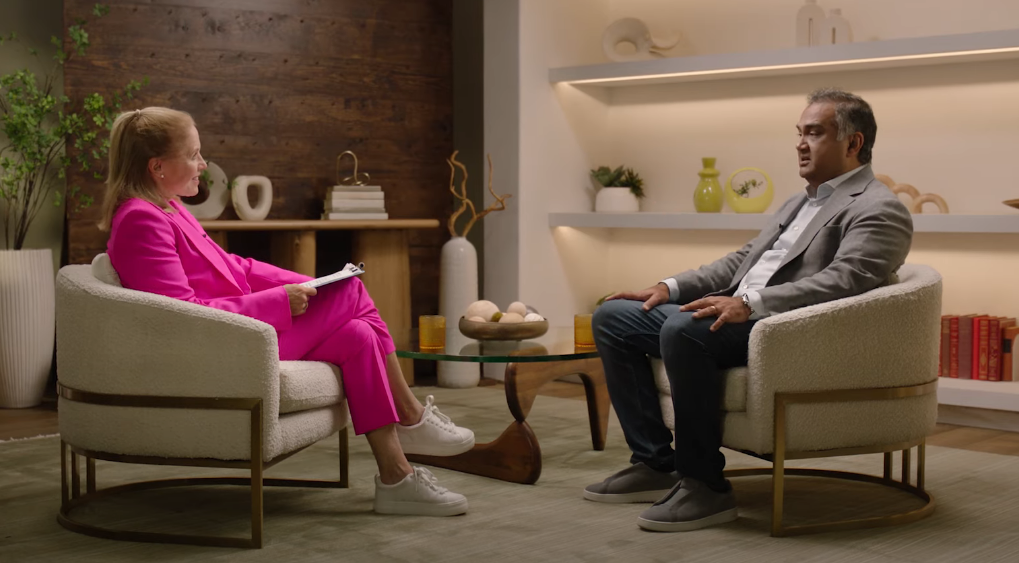In the dynamic space of digital media, YouTube stands tall with a penchant for innovation to adapt to trends and changing technologies. Since taking the reins as CEO in 2023, Neal Mohan has made it pretty clear that artificial intelligence and creator empowerment are right at the center of YouTube’s growth strategy.
Under the leadership of Mohan, the company has placed a stronger focus on AI-driven tools that enable content creators to reach more viewers, engage more deeply, and drive increased revenue. With its integration of AI, YouTube isn’t only changing as a video-sharing medium but also as a complete digital content landscape.
Leveraging AI to Empower Content Creators
One of the most significant developments under Mohan’s leadership is the introduction of AI-powered tools designed to help YouTubers create, edit, and optimize content.
1. AI-Powered Video Creation: Dream Screen & Dream Track
YouTube has launched Dream Screen, an AI tool that allows creators to generate AI-generated video backgrounds with simple text prompts. This feature significantly enhances video production quality and opens new creative possibilities for creators without requiring expensive production equipment.
Another key AI initiative is Dream Track, which allows creators to generate background music using AI-powered tools, making it easier to create original soundtracks. This initiative is part of YouTube’s ongoing effort to enhance the creative potential of its users.
2. AI-Assisted Dubbing for Global Reach
To help content creators expand their audience globally, YouTube has introduced an AI-based auto-dubbing feature. This tool translates and dubs videos into multiple languages, allowing creators to break language barriers and reach international viewers effortlessly.
By using AI-powered voice synthesis, the feature ensures natural-sounding translations, making content more accessible and engaging for audiences across different regions.
3. AI-Generated Comment Replies
Interacting with audiences is crucial for content creators, and AI is now making this process easier. YouTube has begun testing AI-powered comment replies that allow creators to generate intelligent and context-aware responses to viewer comments.
While this feature improves engagement, it also raises concerns about authenticity and personalization, as automated responses might lack the personal touch that many fans appreciate.
YouTube’s Advertising Growth and Monetization Boost
YouTube’s investment in AI isn’t just benefiting creators—it’s also driving revenue growth for the platform.
1. AI-Driven Ad Targeting and Revenue Growth
With advanced AI algorithms, YouTube has improved its advertising targeting system, helping brands reach the right audience more effectively. As a result, advertising revenue has surged, playing a crucial role in Alphabet’s financial performance.
AI’s ability to analyze user behavior, preferences, and content interactions allows YouTube to deliver highly personalized ads, increasing engagement and advertiser spending.
2. YouTube Shorts and AI Monetization
YouTube Shorts, the platform’s response to TikTok, has seen rapid growth. By using AI to recommend Shorts based on user interests, YouTube has successfully boosted engagement and monetization opportunities for creators in the short-form content space.
AI and Ethics: Balancing Innovation with Responsibility
As YouTube embraces AI, it is also facing ethical challenges, particularly regarding AI-generated content, deepfakes, and misinformation.
1. AI-Generated Content & Deepfake Detection
One of YouTube’s biggest concerns is the rise of deepfake content and the potential misuse of AI-generated videos. To address this, the platform is developing AI tools to detect and label AI-generated content, ensuring that viewers are aware when they are watching synthetic media.
2. Transparency and AI Disclosure Policies
To maintain trust and transparency, YouTube now requires creators to disclose when their content is AI-generated or altered using generative AI tools. This policy is part of the company’s broader initiative to prevent misinformation and uphold content authenticity.
3. Opt-In AI Content Training for Creators
In December 2024, YouTube introduced an opt-in feature that allows creators to decide whether their videos can be used to train third-party AI models. This move gives content creators more control over their intellectual property, ensuring that their content isn’t used without permission.
Competing with Rivals: YouTube vs. Netflix, TikTok, and Disney
As the digital content landscape becomes more competitive, YouTube is positioning itself against major players like Netflix, TikTok, and Disney.
1. AI-Powered Content Discovery
One of YouTube’s biggest competitive advantages is its AI-driven recommendation algorithm, which continuously improves content discovery and personalization. This feature keeps viewers engaged longer than competitors, contributing to higher watch times and ad revenues.
2. Investing in Original Content and Sports Rights
To compete with streaming giants like Netflix and Disney, YouTube is heavily investing in original content and sports broadcasting rights. By using AI to analyze audience preferences, the platform is making data-driven content acquisition decisions to maximize viewership.
3. Fighting Back Against TikTok’s Short-Form Domination
TikTok has become a major rival in the short-form video space, but YouTube is fighting back with AI-enhanced Shorts recommendations and monetization opportunities for creators. AI-driven analytics help creators optimize their Shorts, ensuring higher engagement and visibility.
Political Landscape: Free Speech vs. Content Moderation
Neal Mohan’s leadership extends beyond technology—he is also navigating the complex political landscape surrounding content moderation and free speech.
1. AI-Powered Content Moderation
YouTube uses AI-powered algorithms to detect and remove harmful content, including hate speech, misinformation, and policy violations. However, the platform must balance protecting users while ensuring free expression.
2. Elections and Political Content Regulation
As AI-generated political content becomes more prevalent, YouTube is implementing new policies to label and regulate deepfake political videos, ensuring that misleading content does not spread unchecked.
Mohan has emphasized that while YouTube supports free speech, it will continue to enforce community guidelines to maintain a safe and trustworthy platform.
The Future of YouTube Under Neal Mohan
Looking ahead, Neal Mohan’s AI-driven vision for YouTube is clear:
- Enhance creator tools with AI-powered video editing, dubbing, and audience engagement features.
- Expand AI-driven advertising and monetization strategies to support both creators and advertisers.
- Develop ethical AI policies to maintain transparency and prevent the misuse of AI-generated content.
- Compete with major digital platforms like TikTok, Netflix, and Disney by leveraging AI-powered content discovery.
With these initiatives, YouTube is set to remain a dominant force in digital media, empowering creators and reshaping content consumption through AI-driven innovation.
Conclusion
Under the leadership of Neal Mohan, YouTube embraces AI for creativity, monetization, and audience engagement. Mohan makes one thing crystal clear, though: AI is here to help creators, not to replace them.
By focusing on ethical use of AI, empowering creators, and strategic growth, YouTube is setting the stage for a future in which technology and human creativity will go hand in hand.
But with AI opening up new possibilities, the next generation of creators will have more ways than ever to bring their ideas into reality and share them with people all over the world.
For further insights, watch Neal Mohan’s discussion on AI and creativity:
🔗 Neal Mohan and Katie Couric Discuss AI-Powered Creativity












